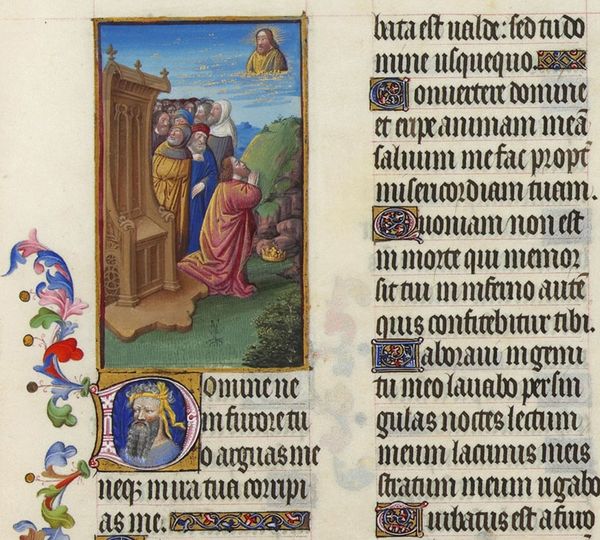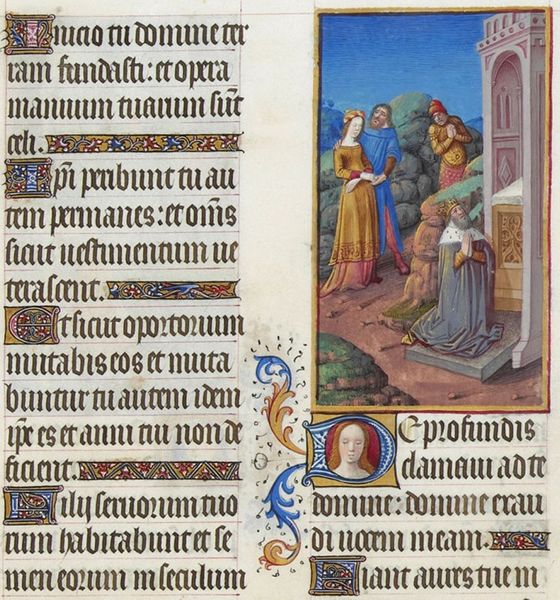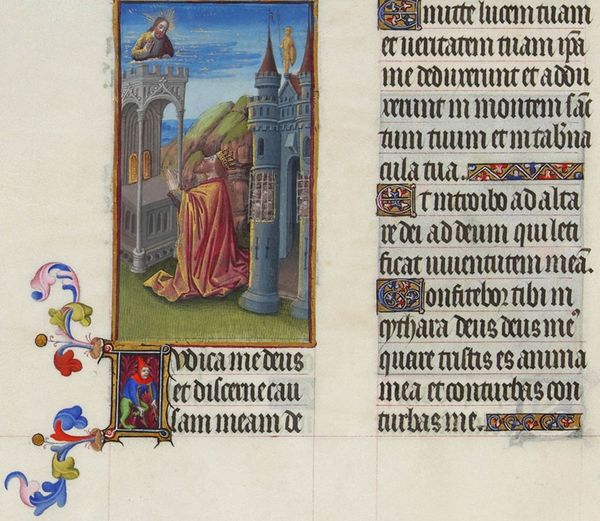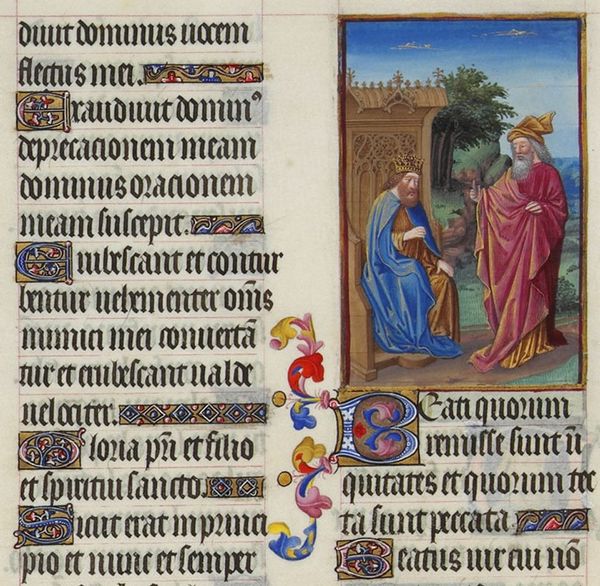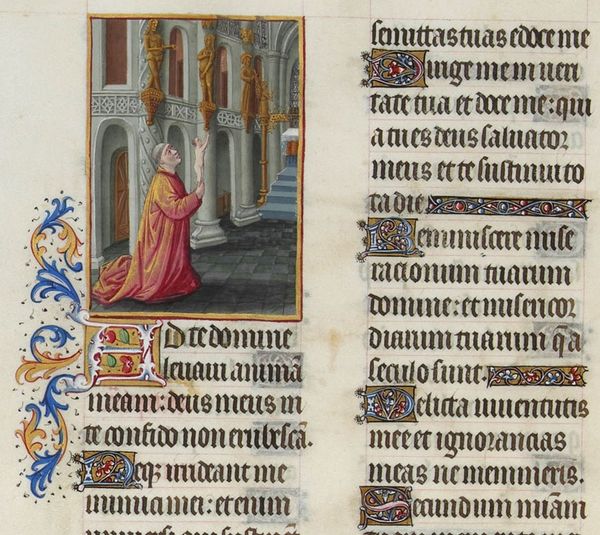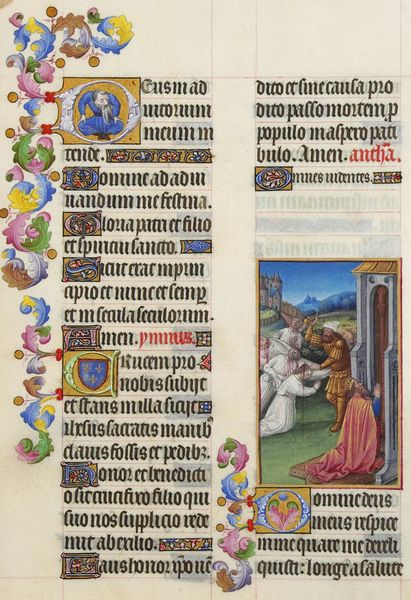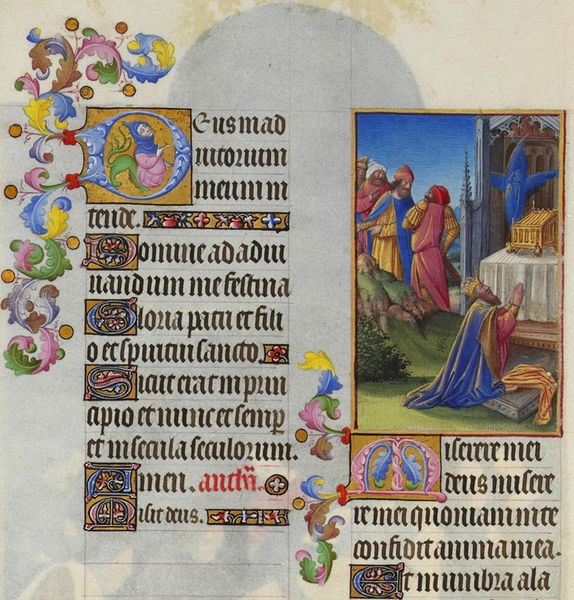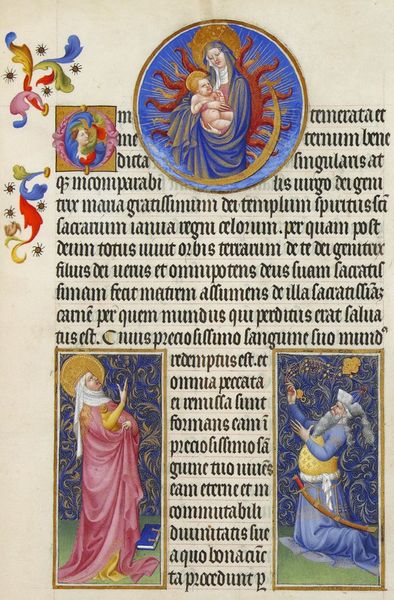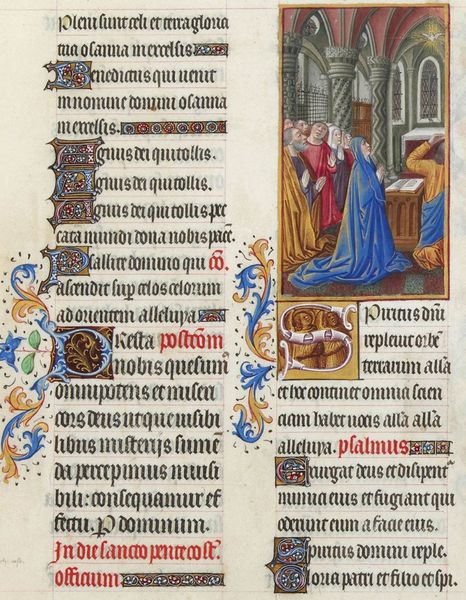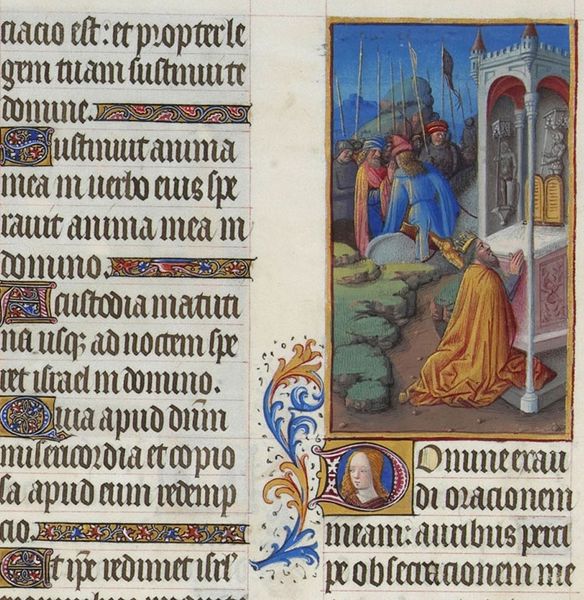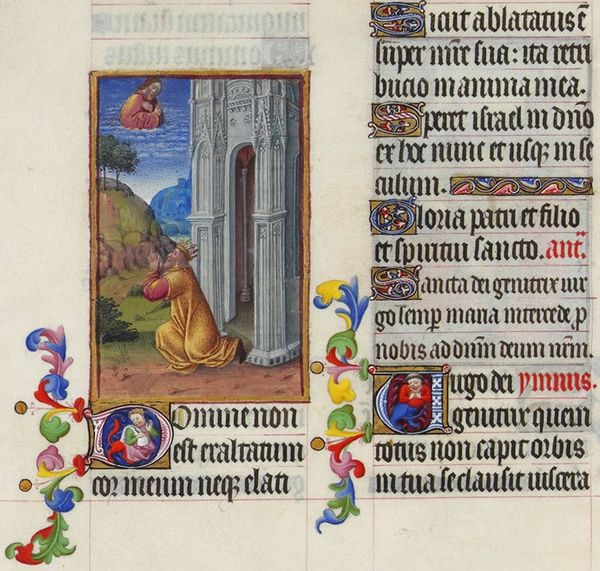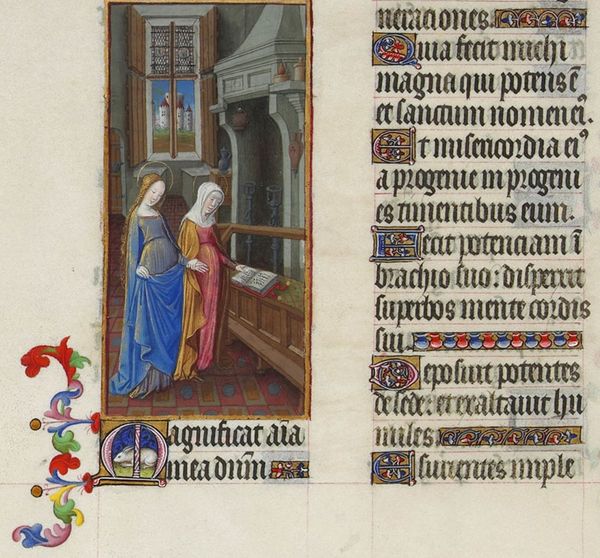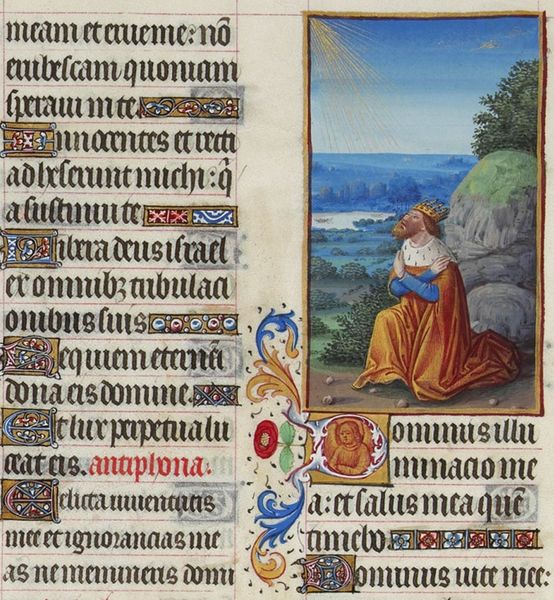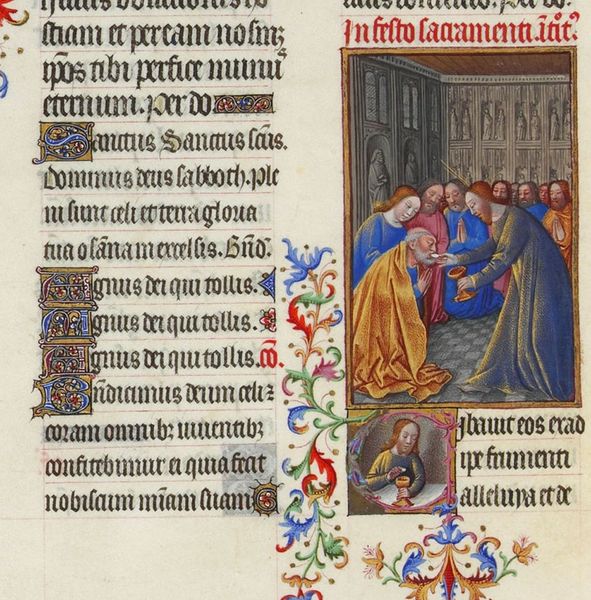
tempera, painting
#
medieval
#
tempera
#
painting
#
figuration
#
text
#
history-painting
#
international-gothic
#
miniature
Copyright: Public domain
This is Psalm CXXVIII, made by the Limbourg brothers, painted sometime in the early 15th century. At center is the king kneeling. His posture, with hands clasped in prayer, represents humility and supplication before the divine. This gesture isn't unique; we see similar postures across cultures, from ancient Egyptian depictions of pharaohs kneeling before their gods to Renaissance paintings of saints in prayer. The clasped hands themselves evolved over time, from a sign of fealty to a symbol of piety. It appears in a different guise in Albrecht Dürer's "Praying Hands", where hands are not a symbol of fealty but are rather raised in gratitude. The act of kneeling and the gesture of prayer are powerful, engaging viewers on a subconscious level, triggering a collective memory of religious devotion and spiritual longing. This symbol's journey through time reveals our deep-seated need to connect with something greater than ourselves. It resurfaces, evolves, and takes on new meanings in different historical contexts.
Comments
No comments
Be the first to comment and join the conversation on the ultimate creative platform.
